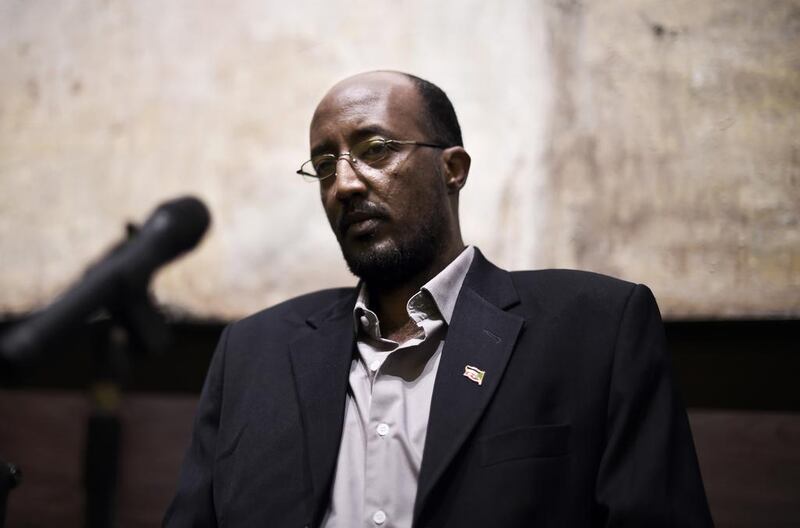The Book of Khartoum is, so the blurb claims, the first major anthology of Sudanese stories to be translated into English. If the title hints at broadness, the collection itself restrains its focus by zooming in on Khartoum.
The city is certainly central to The Void, Hammour Ziada's powerful account of the aftermath following the Mahidists' defeat by Lord Kitchener in 1898. The already hallucinatory prose of the opening, which depicts a soldier wounded at the Battle of Omdurman, disintegrates slowly as he is left suspended not only between life and death, but competing versions of his homeland: "It engulfed him in its nothingness. / The sacred city. / Omdurman. / My city. / Annihilate me. Annihilate me." That possessive pronoun ("My city") rings with ironic poignancy.
For several other writers, Khartoum feels very nearly beside the point. The existential abstractions of Mamoun Eltlib's The Passage or the nightmare dislocations of Bushra Al Fadil's The Story of the Girl Whose Birds Flew Away could be set just about anywhere in the country, if not the world. This is not a criticism, rather an acknowledgment of the range of voices on show. A better link, arguably, is not a place but a state of mind. This might be grounded in a form of reality resembling Khartoum, but remains self-consciously unfixed, wild and even chaotic.
The resulting collision is regularly expressed as dreams, which noticeably appear in just about every story. There is the meandering imagination of the titular A Boy Playing with Dolls by Isa Al Hilu, who invents stories "in a waking dream, or a dreaming wakefulness". The whimsy of this tale (the "boy's" father makes eerily lifelike children's toys) is touched by darker sub-texts (lost love, imminent adulthood, politics). Throughout, one senses Al Hilu meditating upon the challenges facing the artist portraying life in Sudan: "On this mirror-surface the child remade his world."
Al Fadil's impressionistic The Story of the Girl Whose Birds Flew Away could be Khartoum transformed into dream narrative. Urgent, unsettling sentences depict the disorientation of urban chaos, a mind in mourning, or a cri de coeur about violence.
For Uthman, the evasive protagonist of Bawadir Bashir's Next Eid, dreams signify the illusory hopes that define his life: "Every morning, he goes to lectures carrying his notebooks, pens, dreams and a certain number of worries."
Having won a place studying medicine in Khartoum, Uthman finds himself an object of desire and jealousy for many in his home village. Returning for Eid, he finds the girls want to marry him, while the boys envy this same admiration.
The dualities driving the story – countryside vs city, stasis vs ambition – reach an ironic conclusion. All but forgotten amidst the envy and adoration, Uthman goes home to a lonely room and divides his money into discreet but significant piles. Having put aside cash for himself and his family, the final sentence is poignantly telling: “The rest he hides carefully to buy new gifts, for next Eid.”
Similarly divided selves are present everywhere. Hassan, like Uthman, is a small-town boy landed in the big city. Whereas Uthman’s private self longs for home, Hassan’s insecurities are swollen by macho bravado that is punctured by a pointed final sentence.
The Butcher's Daughter by Abdel Aziz Baraka Sakin stages generational, geographical and gender conflicts to expose fault lines in broader Sudan. The tones employed to tell the stories are similarly diverse, ranging from Arthur Gabriel Yak's politicised rage in depicting modern-day refugees to the deeply personal: Rania Mamoun's tender account of her father's death.
My personal favourite is Ahmed Al Malik's The Tank – a very funny but piercing fantasy, in which a lazy, complaining man buys a tank: "the sight of it parked under the neem tree in front of our house did come as a shock to a few of my friends", he notes with nice understatement.
Al Malik traces a crazy-paving of consequences from this absurd premise. Our narrator is firstly feared: the electricity and water suddenly work; the milkman cravenly confesses to watering down his wares, and cleans the tank to make amends. But with great power comes onerous responsibility as well as perks.
Our unappealing hero is besieged by his father’s debtors apologising for failure to pay up. “All the same, they didn’t actually give me any money, even though I had to sit through a lot of promise-making and lavish them with hospitality… My own debts with the butcher and vegetable seller increased as a result.” The punchline elevates the comedy to political satire of an impressive standard.
The Book of Khartoum suggests Sudanese literature is in rude health. By turns funny and tragic, insightful and surreal, these deftly-translated tales illuminate, disturb and, perhaps most importantly, entertain. Seek out at once.
James Kidd is a freelance reviewer who lives in London.





